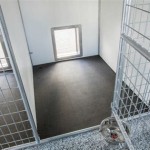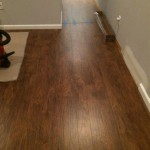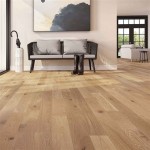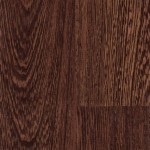Essential Aspects of Best Wood Flooring for Underfloor Heating
Underfloor heating systems offer unparalleled comfort and warmth to any home, but choosing the right wood flooring is crucial to ensure optimal performance and longevity. Here are the essential aspects to consider when selecting the best wood flooring for underfloor heating:
Species and Density
The density of wood species plays a significant role in heat transfer. Denser woods, such as oak, maple, and cherry, conduct heat better than less dense woods, like pine or fir. This means denser species will evenly distribute heat throughout the room, providing a more comfortable and efficient heating system.
Moisture Content
Wood flooring with low moisture content is essential for use with underfloor heating. High moisture content can cause warping and buckling as the wood expands and contracts. Choose wood flooring with a moisture content of less than 10% to minimize these risks.
Stability
Stability refers to the wood's ability to withstand dimensional changes caused by temperature and humidity fluctuations. Select wood flooring with high stability to prevent gapping, buckling, or cracking over time. Engineered wood flooring is generally more stable than solid wood flooring due to its cross-ply construction.
Thickness
The thickness of wood flooring affects its thermal resistance. Thinner flooring allows heat to transfer more easily, while thicker flooring provides more insulation. For optimal heat transfer, choose wood flooring with a thickness of 1/2 inch or less.
Installation Method
The installation method of wood flooring can impact its performance with underfloor heating. Floating floors, where planks are not nailed or glued to the subfloor, allow for greater heat transfer compared to nailed or glued floors. Ensure the flooring is installed according to the manufacturer's instructions to optimize heat distribution.
Other Considerations
Apart from these essential aspects, consider the following additional factors:
- Radiant Temperature: Underfloor heating systems typically have a maximum surface temperature of 84°F (29°C). Ensure the wood flooring you choose can withstand this temperature without damage.
- Acclimation: Allow the wood flooring to acclimate to the indoor temperature and humidity conditions before installation. This will minimize potential movement and warping.
- Maintenance: Regular maintenance is crucial to preserve the integrity of wood flooring. Vacuum or sweep regularly, and follow the manufacturer's cleaning instructions to maintain its appearance and longevity.
By carefully considering these aspects, you can choose the best wood flooring for your underfloor heating system, ensuring optimal comfort, efficiency, and durability for years to come.

What Is The Best Flooring For Underfloor Heating Warmup Usa

Best Flooring For Underfloor Heating Ufh Direct Wood Blog

Guide To Heating Under Hardwood Flooring Warmup Usa

What Is The Best Flooring For Underfloor Heating Warmup Usa

The Best Flooring For Underfloor Heating Tapi Carpets

Best Flooring For Underfloor Heating Ufh Direct Wood Blog

What Flooring Is Best For Underfloor Heating Supplies Direct

Best Flooring To Install Over A Radiant Heating System Today S Homeowner
.jpg?strip=all)
The Best Types Of Flooring For Radiant Heating

Choosing The Best Flooring For Underfloor Heating Luxury
Related Posts








